
Condensed matter physics is the field of physics that deals with the macroscopic and microscopic physical properties of matter, especially the solid and liquid phases which arise from electromagnetic forces between atoms. More generally, the subject deals with "condensed" phases of matter: systems of many constituents with strong interactions between them. More exotic condensed phases include the superconducting phase exhibited by certain materials at low temperature, the ferromagnetic and antiferromagnetic phases of spins on crystal lattices of atoms, and the Bose–Einstein condensate found in ultracold atomic systems. Condensed matter physicists seek to understand the behavior of these phases by experiments to measure various material properties, and by applying the physical laws of quantum mechanics, electromagnetism, statistical mechanics, and other theories to develop mathematical models.

Physics is the natural science that studies matter, its fundamental constituents, its motion and behavior through space and time, and the related entities of energy and force. Physics is one of the most fundamental scientific disciplines, with its main goal being to understand how the universe behaves. A scientist who specializes in the field of physics is called a physicist.
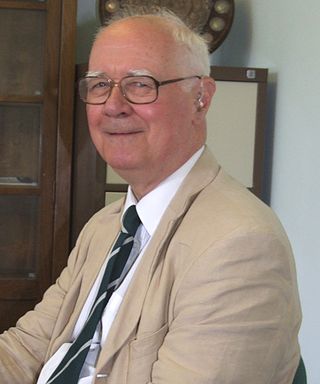
John Charlton Polkinghorne was an English theoretical physicist, theologian, and Anglican priest. A prominent and leading voice explaining the relationship between science and religion, he was professor of mathematical physics at the University of Cambridge from 1968 to 1979, when he resigned his chair to study for the priesthood, becoming an ordained Anglican priest in 1982. He served as the president of Queens' College, Cambridge, from 1988 until 1996.

Edward Witten is an American mathematical and theoretical physicist. He is a Professor Emeritus in the School of Natural Sciences at the Institute for Advanced Study in Princeton. Witten is a researcher in string theory, quantum gravity, supersymmetric quantum field theories, and other areas of mathematical physics. Witten's work has also significantly impacted pure mathematics. In 1990, he became the first physicist to be awarded a Fields Medal by the International Mathematical Union, for his mathematical insights in physics, such as his 1981 proof of the positive energy theorem in general relativity, and his interpretation of the Jones invariants of knots as Feynman integrals. He is considered the practical founder of M-theory.
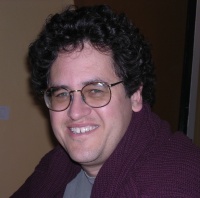
John Carlos Baez is an American mathematical physicist and a professor of mathematics at the University of California, Riverside (UCR) in Riverside, California. He has worked on spin foams in loop quantum gravity, applications of higher categories to physics, and applied category theory.

Alan David Sokal is an American professor of mathematics at University College London and professor emeritus of physics at New York University. He works in statistical mechanics and combinatorics. He is a critic of postmodernism, and caused the Sokal affair in 1996 when his deliberately nonsensical paper was published by Duke University Press's Social Text. He also co-authored a paper criticizing the critical positivity ratio concept in positive psychology.
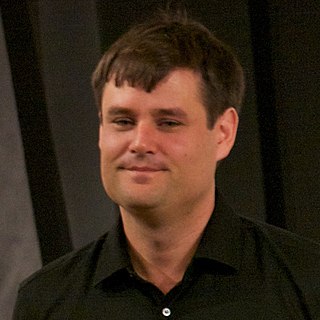
Michael Aaron Nielsen is a quantum physicist, science writer, and computer programming researcher living in San Francisco.
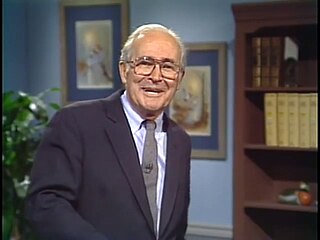
John Henry Gerstner was an American Reformed and Presbyterian theologian and professor of Church History at Pittsburgh Theological Seminary and Knox Theological Seminary. He was an expert on the life and theology of Jonathan Edwards.

Soli Deo gloria is a Latin term for Glory to God alone. It has been used by artists like Johann Sebastian Bach, George Frideric Handel, and Christoph Graupner to signify that the work was produced for the sake of praising God. The phrase has become one of the five solae propounded to summarise the Reformers' basic beliefs during the Protestant Reformation.
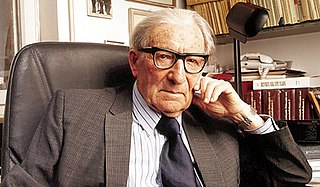
Max Jammer, was an Israeli physicist and philosopher of physics. He was born in Berlin, Germany. He was Rector and Acting President at Bar-Ilan University from 1967 to 1977.

Alexander Borisovich Zamolodchikov is a Russian physicist, known for his contributions to condensed matter physics, two-dimensional conformal field theory, and string theory, and is currently the C.N. Yang/Wei Deng Endowed Chair of Physics at Stony Brook University.
Steven Scott Gubser was a professor of physics at Princeton University. His research focused on theoretical particle physics, especially string theory, and the AdS/CFT correspondence. He was a widely cited scholar in these and other related areas.
Steven M. Girvin is an American physicist who is the Eugene Higgins Professor of Physics at Yale University and who served as deputy provost for research at Yale from 2007 to 2017. Girvin is noted for his theoretical work on quantum many body systems such as the fractional quantum Hall effect, and as co-developer of circuit QED, the application of the ideas of quantum optics to superconducting microwave circuits. Circuit QED is now the leading architecture for construction of quantum computers based on superconducting qubits.

Piers Coleman is a British-born theoretical physicist, working in the field of theoretical condensed matter physics. Coleman is Professor of Physics at Rutgers University in New Jersey and at Royal Holloway, University of London.
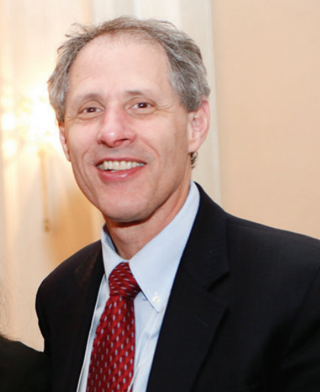
Thomas Felix Rosenbaum is an American physicist and the current President of the California Institute of Technology. Earlier he served as Provost and on the faculty of the University of Chicago, and was the Vice President for Research at Argonne National Laboratory.
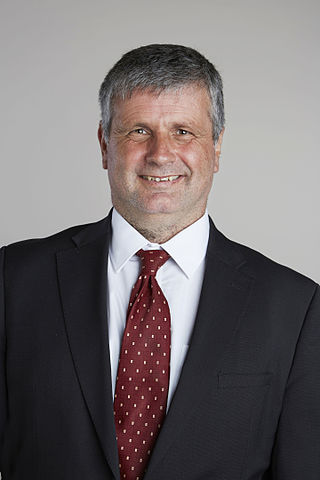
Andrew Peter Mackenzie is a director of Physics of Quantum Materials at the Max Planck Institute for Chemical Physics of Solids in Dresden, Germany and Professor of Condensed Matter Physics at the University of St Andrews, Scotland. He became a co-editor of the Annual Review of Condensed Matter Physics as of 2020.
Eduardo Hector Fradkin is an Argentinian-American theoretical physicist known for working in various areas of condensed matter physics, primarily using quantum field theoretical approaches. He is a Donald Biggar Willett Professor of Physics at the University of Illinois at Urbana–Champaign, where he is the director of the Institute for Condensed Matter Theory, and is the author of the books Quantum Field Theory: An Integrated Approach and Field Theories of Condensed Matter Physics.
Shivaji Lal Sondhi is an Indian-born theoretical physicist who is currently the Wykeham Professor of Physics in the Rudolf Peierls Centre for Theoretical Physics at the University of Oxford, known for contributions to the field of quantum condensed matter. He is son of former Lok Sabha MP Manohar Lal Sondhi.
Nai Phuan Ong is an American experimental physicist, specializing in "condensed matter physics focusing on topological insulators, Dirac/Weyl semimetals, superconductors and quantum spin liquids."













